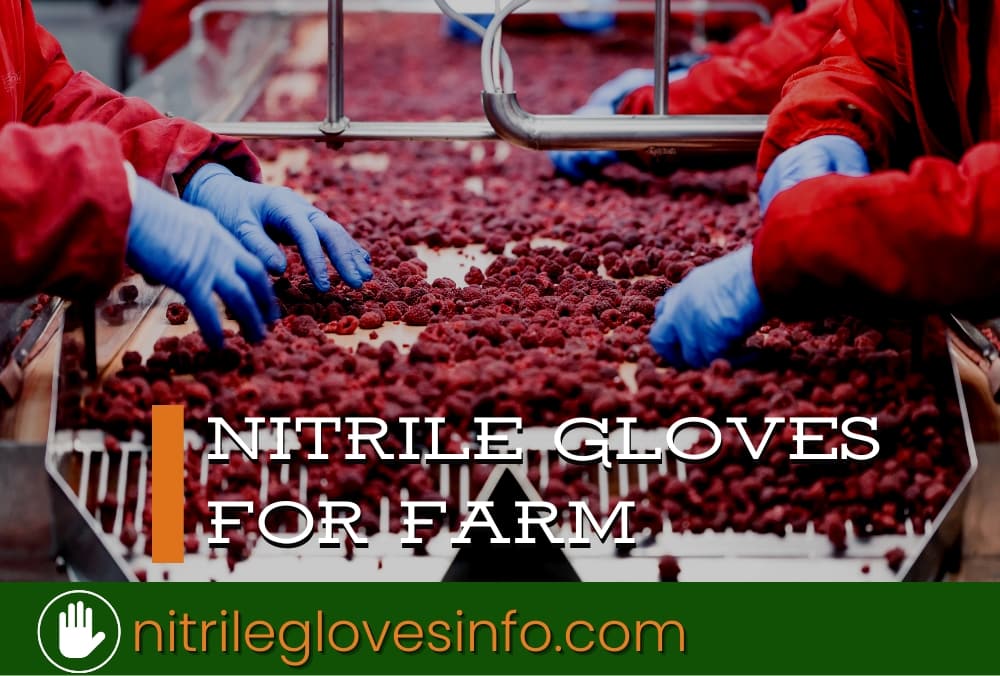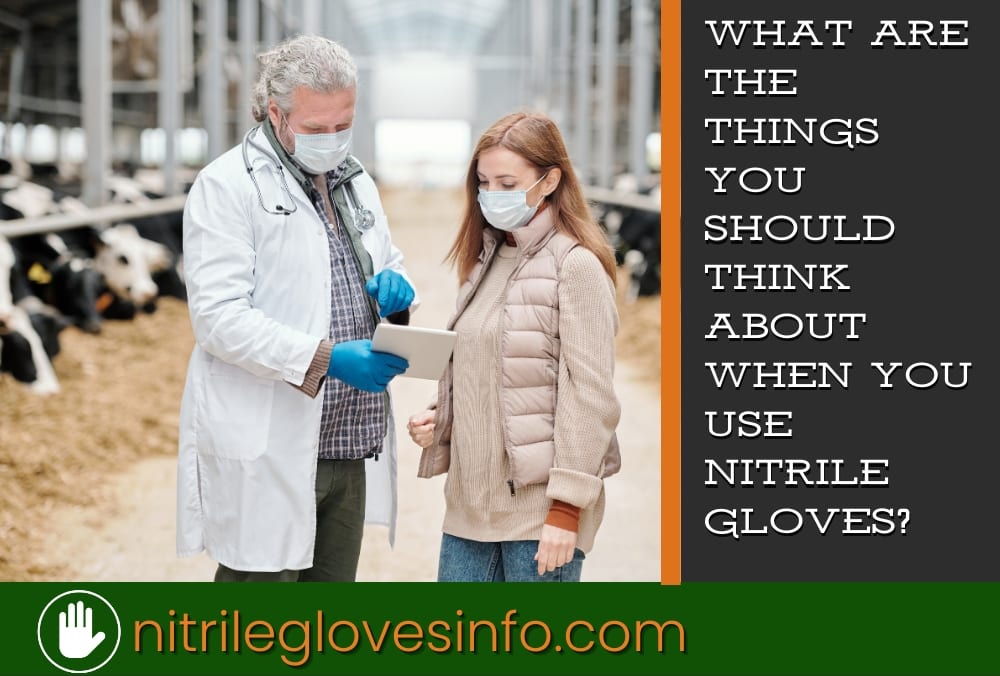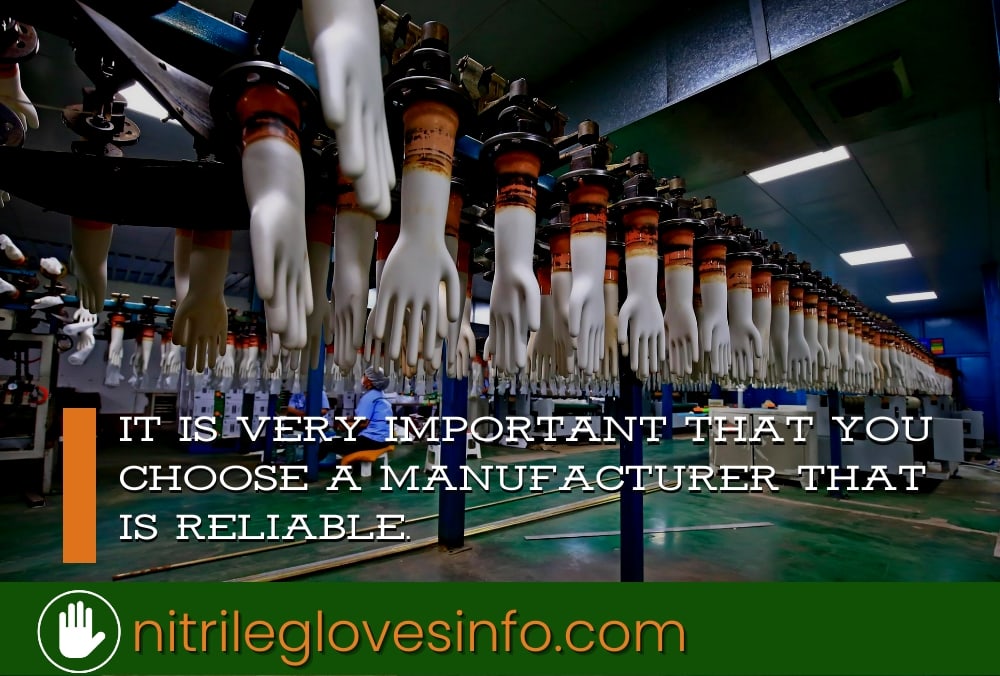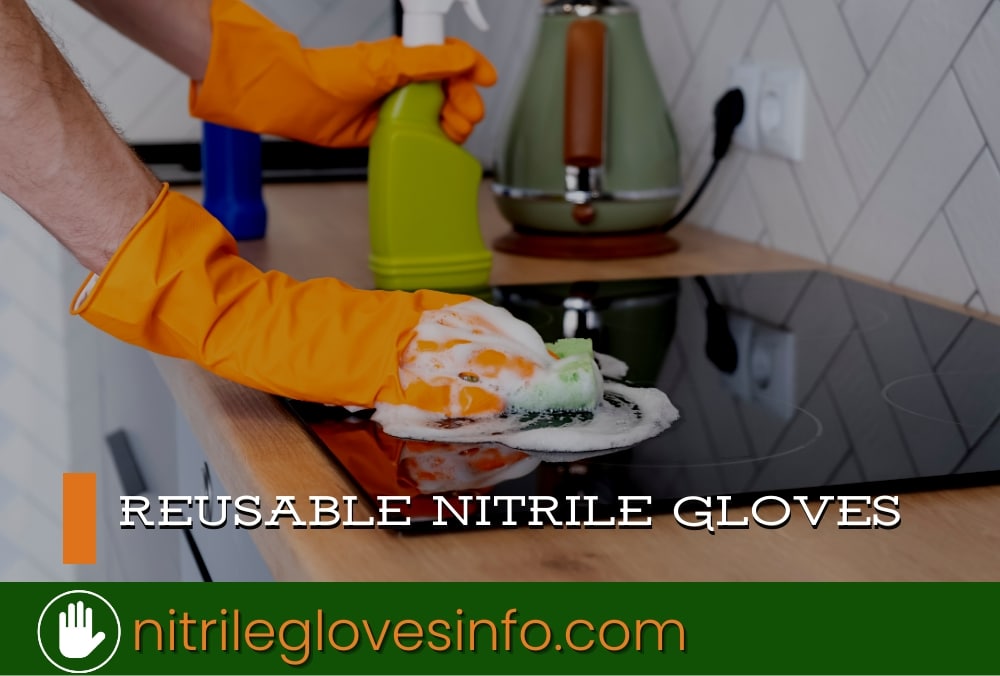When it comes to safety on the farm, it’s important to wear the right kind of gloves. Nitrile gloves are a popular gloveworks choice because they offer good protection from both chemicals and bacteria. However, not all nitrile gloves are created equal. In this article, we’ll walk you through the different factors to consider when choosing nitrile gloves for your farm. We’ll also provide a list of the best nitrile gloves for different applications on the farm.
Table of Contents
- Do you need gloves when you work on your farm?
- What kind of work are you doing on your farm?
- What are gloves for?
- What are nitrile gloves
- What are the benefits of Nitrile Gloves for Your Farm?
- What are some disadvantages of using nitrile gloves for Your Farm?
- Which factors should you consider when choosing nitrile gloves?
- What kind of things are you gonna use the gloves for?
- Think about the kinds of injuries that you could get in your hands.
- What kind of glove materials do you need?
- Choose a Reputable Manufacturer
- How to choose the best nitrile gloves for your farm?
- Disposable nitrile gloves vs Reusable nitrile gloves
- Industrial vs. Exam Nitrile Gloves
- Nitrile Glove Size & Color
- Powdered vs. Powder-Free Nitrile Gloves
- Nitrile Glove Length
- Nitrile Glove Thickness
- Texture
- Conclusion
- Related Posts
Do you need gloves when you work on your farm?

What kind of work are you doing on your farm?
What you do on your farm is much more varied than many people realize. There are 4 major types of crops, and they vary according to the season and type of farm. But all of them fall into 4 categories. On small farms, the farmer and her family do the work. On larger farms, workers who are permanent or contract workers can do the work.
- Land management.- You have to grow and harvest.
- Make sure all livestock and farm animals are well.
- All the work that needs to be done, maintenance and repair.
- Running the Farm Business
What are gloves for?
Do you ever wonder why farmers wear gloves and personal protective equipment? Maybe you’ve seen a picture of a farmer, and they’re covered in dirt and grime, but you’ve never asked yourself why. In this article, we’ll provide you with the answer to that question and more. We’ll explain why farmers wear gloves on their farm, and we’ll provide you with some tips on how to choose the best pair of gloves for your work. So if you’re ever curious about why farmers wear gloves, this is our blog for you!
What are nitrile gloves
Nitrile gloves are very popular in the agriculture and food industry. The nitrile glove market has changed significantly over the past few years. They are made by using chemicals and the reason for this is to make them tight fitting without compromising their quality. Many farmers use these gloves because of how durable they are compared with other types (nitrile) although in recent years, there have been several different brands that provide a greater level of protection against viruses and bacteria with nitrile being one which has caught up drastically. Nitrile gloves provide excellent tactile feedback, giving workers a strong sense of touch although they may not be as heavy or durable as leather and cotton gloving options.
What are the benefits of Nitrile Gloves for Your Farm?

Gloves are a must for all farming and agriculture businesses, so workers don’t have to work with pesticides or take care of livestock.
Workers get really irritated when they come in contact with pesticides, herbicides, or other products. They kill some of the weeds that can harm the crops and leave the rest intact. Wearing nitrile gloves is important when using these products. These gloves are tough and have high chemical resistance.
What are some disadvantages of using nitrile gloves for Your Farm?
Nitrile gloves are a great choice for those who are working with hazardous materials, as they are resistant to many chemicals and acids. However, there are a few disadvantages to using nitrile gloves when working with food. There are environmental concerns with the production of nitrile gloves. Nitrogen oxides (NOx) are released during the manufacturing process, and these gases have been shown to cause environmental damage.
So, while nitrile gloves may be a good choice for those who are working with hazardous materials, they might not be the best option for those who are working with food. Make sure to select the right type of gloves for the job at hand and be sure to wear them properly for maximum safety!
Which factors should you consider when choosing nitrile gloves?

What kind of things are you gonna use the gloves for?
So before you decide on which type of glove to use, first decide what you really want to use the gloves for. Are your gloves going to help you have a better grip, comfort while you work, or protection from injury?
If you must keep a firm grip on your tools, you might consider buying gloves made from a specialized palm material. Use gloves that have rubber grips on them if you use hammers or gardening tools.
Think about the kinds of injuries that you could get in your hands.

While gardening, your hands may get splintered by bug bites, stinging insects, and other small hazards that you may not notice. Sometimes, wearing lightweight gloves can help minimize those risks significantly.
When you are looking for heavy duty work gloves, you must be aware of all the kinds of injuries that you can get. Do you have any chances of getting lacerations, crush injuries, pinch injuries, burns, impact damage, or repetitive motion strains while you work?
If you are afraid of cuts and pinches, choose thick, durable gloves. That will help you avoid some of the damage. If your work involves weight or impact injuries, you should choose gloves with padding in them and liner gloves to reduce the severity of those injuries.
What kind of glove materials do you need?
Nitrile rubber has synthetic properties that make it safer than natural latex. Nitrile rubber is a synthetic rubber, meaning it’s created chemically instead of being extracted from other substances, such as milk and tree trunks (natural rubber). They possess many of the same benefits as natural latex gloves, including flexibility and dexterity, yet they eliminate the potential for allergies because nitrile is a synthetic rubber without the properties in latex that cause latex allergies.
Nitrile rubber gloves are the great choice because they are suitable than latex gloves because it will not be allergic to latex. These are difficult to allergic reaction which is important for some people that work in the medical field. The advantage of nitrile over latex gloves is its chemical resistance against solvents and water-based substances along with long wear time, durability and low oil absorption rate; all these properties make it the ideal choice if you plan to
Some farm workers do a lot of manual work like fixing tractors and farm equipment. There are no regulations about using gasoline, brake fluid, or diesel fluid while they are working. Make sure you are wearing gloves when you come into contact with these substances. If you work with these things barehanded, you risk contaminating the ground or irritating your skin. Maybe latex, PPE
disposable nitrile gloves and vinyl gloves are rated for braking fluid. But nitrile gloves can handle brake fluid better than latex and vinyl gloves. But the fact that latex isn’t as strong as gasoline, vinyl is a lot stronger, and nitrile is great too.
Choose a Reputable Manufacturer

Next, make sure that you get nitrile gloves from a reputable company. If you need gloves that are made specifically for the job, check that potential manufacturers have been manufacturing garments for workers like you in the past. So for example, if you are dealing with lots of corrosive chemicals, find out how well the gloves that were made by this manufacturer for laboratory workers, fabricators, and cleaning staff are rated.
How to choose the best nitrile gloves for your farm?
When it comes to protecting your hands while working in the garden or on the farm, nothing is as effective as wearing nitrile gloves. Nitrile gloves are made of synthetic rubber, which makes them resistant to tears and cuts, and they are available in a range of colors so that you can easily identify them in case of an emergency. Another great thing about nitrile gloves is that they don’t leave any residue on your hands, which means that you won’t have to worry about any staining or odor.
Disposable nitrile gloves vs Reusable nitrile gloves

Depends on what kind of job you do and what kind of work you prefer. Disposable nitrile gloves are much more convenient to use. They are very light and easy to carry. Reusable nitrile gloves are reusable once they get dirty or old but with time the contaminate can build up in them which could inflict some pain when you wear it over your other face glove.
Industrial vs. Exam Nitrile Gloves
Many agricultural industries use nitrile gloves, and it is important to know the differences between industrial and exam gloves.
Industrial Grade Nitrile Gloves are designed to protect the wearer from oils, animal fats and greases, as well as hair care products. They are also designed to resist puncture when handling dry foods or containing potential debris such a bearings. Industrial grade nitrile gloves are very elastic and have excellent tactile sensitivity. Industrial Nitrile Disposable Gloves are best for farm and food service because of the chemical resistant and resistance to puncture, rips and tears.

Medical Grade Nitrile Gloves are designed to protect the wearer from blood borne pathogens, such as hepatitis and bodily fluids. They are also designed to resist external damage when handling medications with potential for detergent contamination or mechanical splashing of droplets into equipment.
Industrial Grade Nitrile Gloves are ideal for farm use. They can handle mechanical splashing and detergent contamination. They are also good for handling heavy duty chemicals that could irritate skin, but only if properly gloved up with a full set of linen under the glove.
Nitrile Glove Size & Color

There are so many kinds of disposable protective gloves out there today. They come in a variety of different sizes and they are not reliable. So your application can get lost. When you have the right glove sizes, it will help you perform better and allow you to perform all your work comfortably.
Nitrile gloves come with many color in the market. When it comes to choosing the right nitrile gloves for your farm, there are a few things to consider. Black nitrile gloves are commonly used in automotive applications where oils and grime are common, but blue nitrile gloves are also common in the medical industry. Color coding may help reduce cross contamination in different areas of the workplace, depending on industry preference.
Powdered vs. Powder-Free Nitrile Gloves
Powdered nitrile gloves absorb extra moisture so you can put them on easily. Powder free set of gloves designed for people who wear them and are protected from the messiness of powder.
Powdered gloves are alright for people with sensitive skin who cannot handle the extra moisture. Powdered nitrile are perfect for industry use; in fact they can absorb moisture and dry faster than powder-free ones.
Powder-Free Nitrile Gloves are gloves that don’t have any powder. They are designed for people with sensitive skin who cannot handle powder or do not want the extra messiness of wearing them and rolling up a dried-out glove over their hands are know to be oily etc.
Nitrile Glove Length

Nitrile gloves are available in all lengths that are available in the market. Longer gloves are better for hand protection. When you use insecticide, you should wear longer gloves and also protective clothing. Put those long gloves on your arm to protect your arm. Wearing a longer glove, you’ll be less dexterous.
Nitrile Glove Thickness
In the nitrile gloves industry, the thickness of the gloves can vary from 4 to 8 mil. Thicker nitrile gloves are more protective, but they also provide less density. Thinner gloves have more dexterity and are cheaper, but they don’t provide much protection. When you decide to work at a farm, think about what kind of work you will do and how hard you will work. When you work harder, wear thicker nitrile gloves.
Texture

When it comes to choosing the best nitrile gloves for your farm, texture is important. Do you have a job that requires you to work both wet and dry conditions? Nitrile industrial gloves are textured for enhanced grip. A textured disposable glove has a visible texture that can be easily felt, and the texture may cover the entire finger and palm area, as well as the edges.
Conclusion
The original nitrile gloves were created to be “disposable protection”. Now, there are several ways that can help you protect yourself from plant pests. Nitrile gloves are the most common type of glove used in pest control today. Use these guidelines so you are protected and not being attacked when you work. Get Best Cheap Nitrile gloves here!






